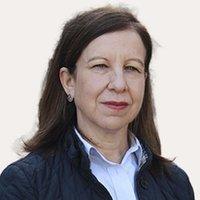Two men from Baghdad - the artist and the entrepreneur
- Published
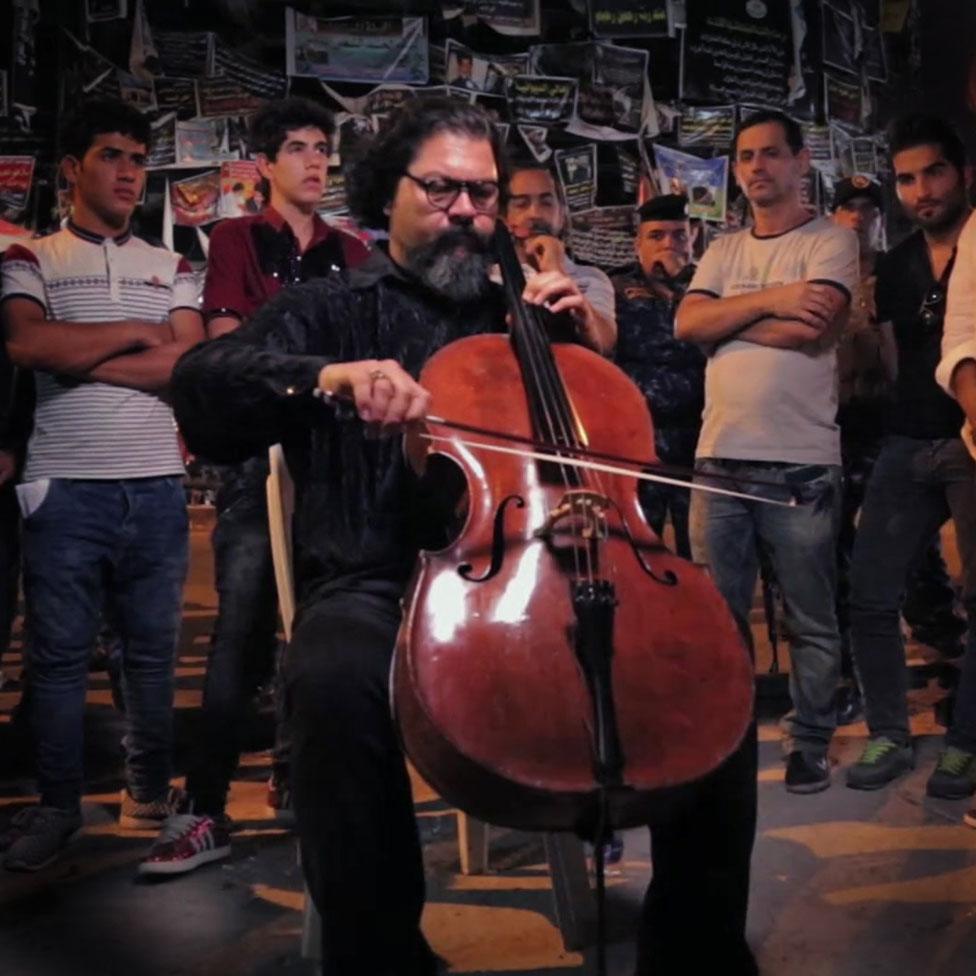
As Karim plays, Sadiq stands behind him, to the right, with his arms folded
This is a story of Karim and Sadiq. It's also a story about Iraq.
The two men first met in 2001 - a time when Iraq was in the iron grip of Saddam Hussein, a time of few freedoms.
Karim Wasifi, studying music in the United States, slipped into Baghdad to help musicians and other artists. Once there, he needed to buy an Iraqi-made suit. He knew where to find it - in Baghdad's popular Karrada neighbourhood, a place where all of Iraq lived, people of every faith, and no faith. Sadiq Maroof was a young shopkeeper there.
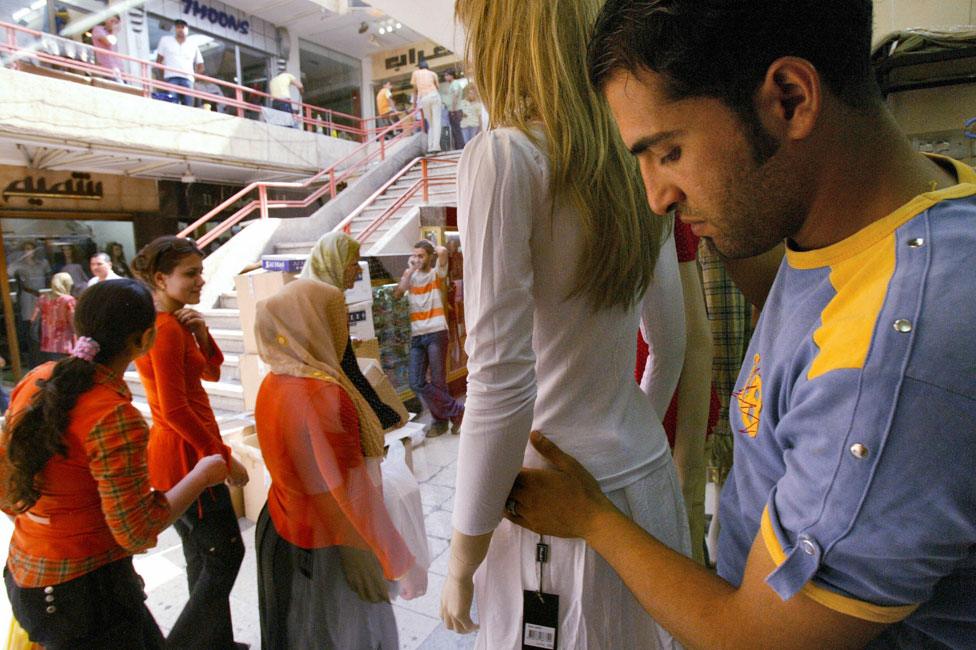
Karrada shops in better times - 10 years ago...

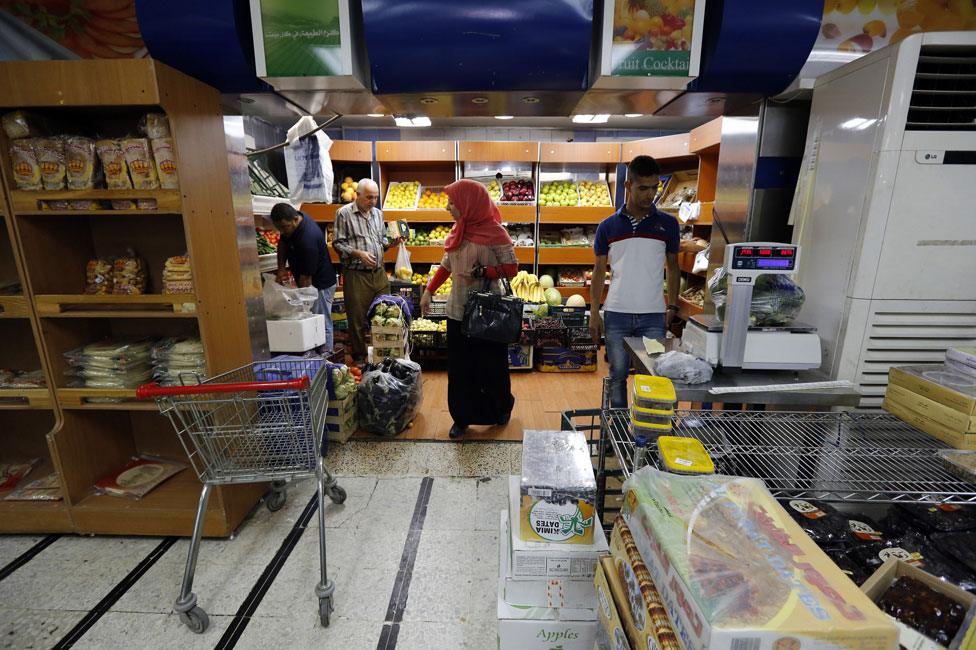
... and in 2014
This week, they met again, unexpectedly, on the same street, both in their 40s now. Karim, with his tangle of black curly hair, and round black-rimmed glasses, was wearing black in mourning. Sadiq, in a simple T-shirt, with a receding hairline now, wore his own sadness like a cloak. Weeks earlier, the so-called Islamic State had made it to this street - and carried out its deadliest attack, ever. 292 Iraqis died here.
I watched the two men say hello, and their moment of recognition.
"We've met before," Sadiq told Karim proudly. "Yes, I remember," Karim replied. Then, turning to me, he explained how Sadiq's family's store was so well known, well regarded, in Baghdad. Sadiq beamed.
Karim is now known by many. He's the conductor of Iraq's famed National Symphony Orchestra, a composer, and, he says, an arts activist. They call him "the maestro".
He came to Karrada to play his cello, a 300-year-old instrument he cradled carefully as crowds gathered. A scorching Baghdad heat clung on, although the sun had set a few hours before.
Young men ran to bring Karim two plastic chairs they stacked together… a solid seat for a big man with an even bigger message. Karim said he wanted to create a moment of beauty, of civilisation, at the very site where a group caused terror and death, and created darkness.
The mournful lament from his cello wafted through the dark warren of charred and gutted shops which now line a street once known for its bright, blinking neon signs and shops selling everything from perfume to pretty dresses to kebabs.
(July 2016) The site of a deadly attack in Baghdad is now a shrine to the dead
Sadiq had also come to Karrada to remember the dead. He survived the night of the attack by jumping from a window. But nine members of his family died in the blazing orange fireball set off by the blast. The victims included his nephews working in the family's clothing business, together with their wives and children. They'd come to shop on a festive night just before the Muslim Eid celebration.
And many of his friends also burned alive in a shopping centre with no emergency exits, no fire escapes. "They were as precious as my family," he explained, anger and emotion still raw, three weeks on from the attack.
The stock of clothing his family has proudly sold for years is just mounds of blackness now. "It's OK," he told me with a shrug and a forced smile. "We'll build the business again."
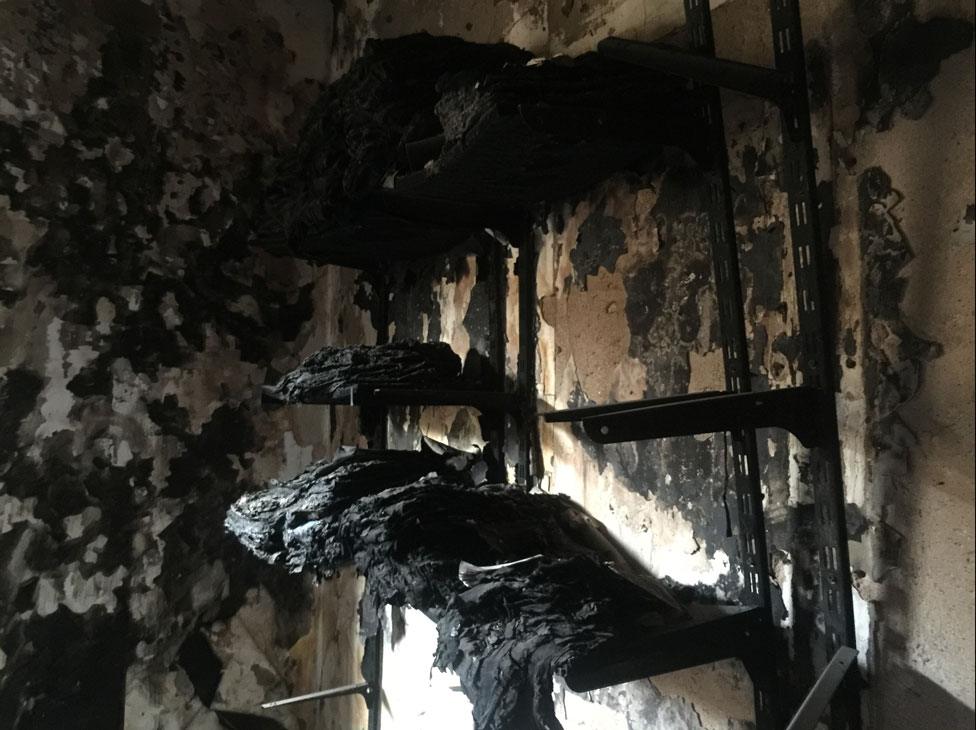
Charred goods in Sadiq Maroof's shop

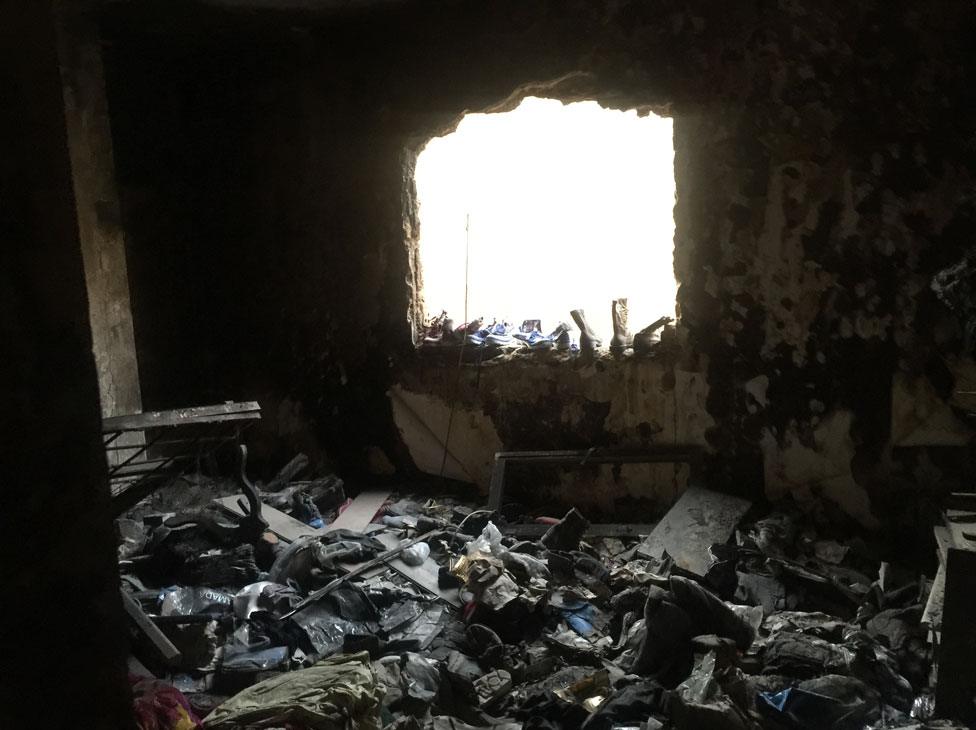
The wreckage of a store room
Sadiq stood behind Karim when the musician played a piece he'd composed himself. Immortal Spirits, Karim called it. He often goes to the scenes of bombings to play because he knows that, with every day this war goes on, a bit more of the fabric of life in this city dies. Many in Iraq's National Symphony Orchestra have already left. Karim's own family has packed up too.
Yet like many Iraqis who returned after the 2003 war toppled Saddam Hussein, Karim insists he will stay. He's training young musicians - the best will fill the orchestra's empty chairs. He's also set up an art space for young poets, painters, and, of course, musicians.
But the young man he met on this street years ago now says he wants to go. Sadiq draws me aside, as Karim continues to play, and tells me he can't take life here any more.
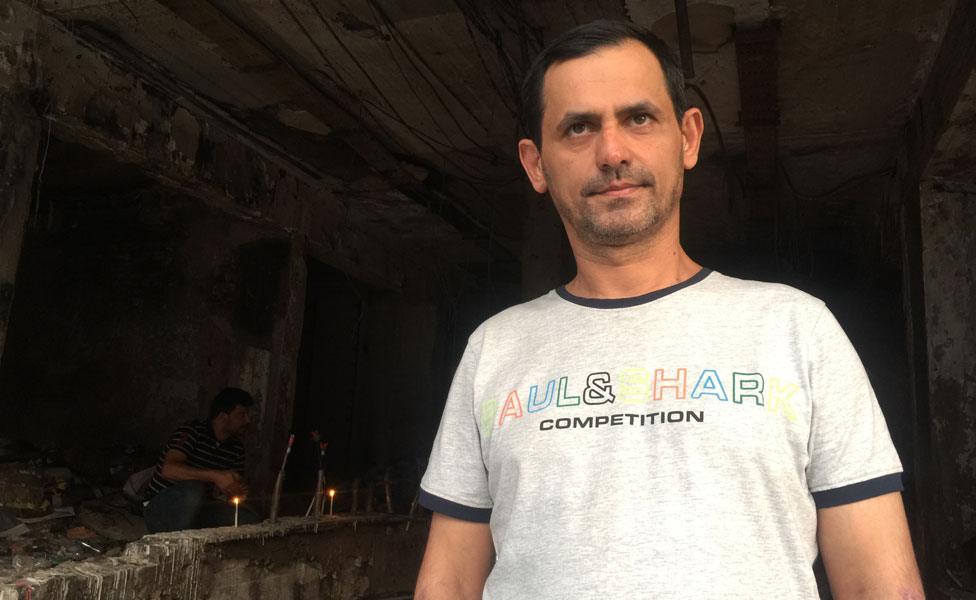
Sadiq Maroof: Ready to leave Baghdad
They're the two sides of Iraq you see everywhere you go. Some Iraqis still insist their life is here and only here. But many others, especially the young, see no future here at all. And then there's the vast majority who feel they have no choice but to carry on, no matter what.
Karim symbolises a country once famed in the region and beyond for its world-class artists, architects, archaeologists and more. Sadiq represents the enterprising spirit in an oil-rich land which should be able to bring prosperity for its people.
Karim and Sadiq met again this week for another fleeting moment. Who can say when their paths will cross once more or what Iraq will be like then?

Find out more
From Our Own Correspondent has insight and analysis from BBC journalists, correspondents and writers from around the world
Listen on iPlayer, get the podcast or listen on the BBC World Service or on Radio 4 on Saturdays at 11:30 BST

Follow @BBCNewsMagazine, external on Twitter and on Facebook, external
